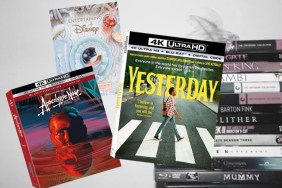Toward the end of the recent BBC documentary Imagine: Toni Morrison Remembers, the ruling elder stateswoman of American letters is asked about the “Black is Beautiful” movement in America in the 1960s. Her reply – what she says, the way she says it – illustrates why she’s one of our most important thinkers as well as writers. (The two are not synonymous.) Of the slogan and the impetus behind it, she says, “It’s too frail. It was part of what I really despise, which was addressing white people. Who are you talking to? You talking to me? No, I know I’m beautiful. You’re talking to white people…. I’m not talking to white people [when I write.]”
Also: Is There a Way to Halt the Gentrification of the American Mind?
She makes clear that she understands why the saying was drafted, why it was important for a lot of black people to embrace it – and for the rest of the country to hear it – but also makes clear why she couldn’t wholly get behind it. Her reply is biting but not simply dismissive, and gets at deeper political and cultural issues in play. Her quote above illustrates how sometimes the ways in which we empower ourselves – no matter how much they might frighten or anger our oppressors – might also underline, even reinscribe, their power over us, reinforcing their centrality even as we think we’re dismantling it.
For fans of Ms. Morrison, the min-doc doesn’t actually reveal much (if any) new information as it outlines her personal and career narratives, and where the two twine, and her philosophical ruminations on art, life, race and responsibility. Still, the hour-long piece is well worth a look for the visuals used to tell her tale: photos and film footage of her childhood home, lots of family photos of her as a girl and teenager, even more photos of her as a gorgeous co-ed at Howard University, a look at the New York apartment where she lives, and the house where she writes (both as impeccably decked out as you’d imagine.) There are also Hollywood film clips (Shirley Temple dancing with Bill “Bojangles” Robinson) and both iconic and rare photos of lynchings, black families at the turn of the 20th century, and newsreel footage of various race-fueled uprisings/rebellions. And the talking heads – Angela Davis, Hilton Als, and Jessye Norman among them – outline her attributes as friend, writer, and immeasurable cultural force in such a way as to both humanize and canonize her. Throughout, Ms. Morrison is a magnetic figure as she answers the interviewer’s questions. She’s by turns playful, earthy, and commanding.
Definitely check it out. As well as the below excerpt from one of Ms. Morrison’s classic interviews with Charlie Rose.
Ernest Hardy is a Sundance Fellow whose music and film criticism have appeared in the New YorkTimes, the Village Voice, Vibe, Rolling Stone, LA Times, and LA Weekly. His collection of criticism,Blood Beats Vol. 1: Demos, Remixes and Extended Versions (2006) was a recipient of the 2007 PEN / Beyond Margins Award.







